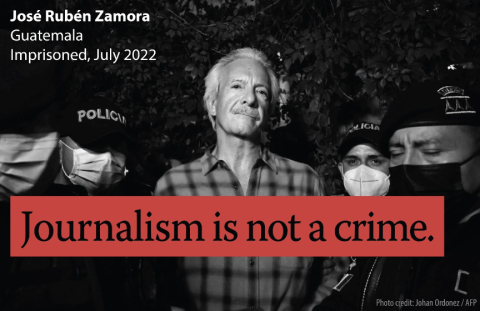On July 29 of last year, Guatemalan authorities arrested ICFJ Knight Award winner Jose Rubén Zamora at his home and raided his newsroom. A year later, the 66-year-old former publisher has been sentenced to six years in prison on fabricated charges, passing 23 hours a day alone in a cell. His news outlet, elPeriódico, has gone silent, forced to close due to relentless legal harassment and economic pressure.
The prosecution of Jose Rubén, one of the world’s most celebrated journalists from Latin America, is an attack on independent journalism. It has cascading effects on democracy not only in Guatemala, but the broader region and beyond. On this heartbreaking anniversary, please join all of us at ICFJ and a chorus of voices across the world calling for Jose Rubén’s immediate release.
You can show your support by sharing this petition using the hashtags #ZamoraLibre and #FreeZamora. You can also amplify news about his case and other calls demanding Zamora’s freedom, such as this letter signed by 25 fellow ICFJ Knight International Journalism Award winners.

The coordinated, multipronged effort to bring down Jose Rubén is not isolated. More than 750 attacks on journalists have been recorded under Guatemalan President Alejandro Giammattei. Dozens of journalists, prosecutors and judges have been forced to flee the country.
At ICFJ, we are providing urgent assistance to independent journalists from Guatemala working to cover the country’s political crisis, even as they face intimidation and threats. And we won’t stop raising our voices for Jose Rubén until he is free and reunited with his family.
These worrisome developments in Central America’s largest democracy remind us why independent journalists are so vital – and why our support for them is too.